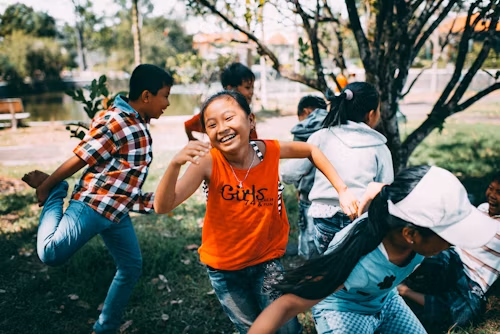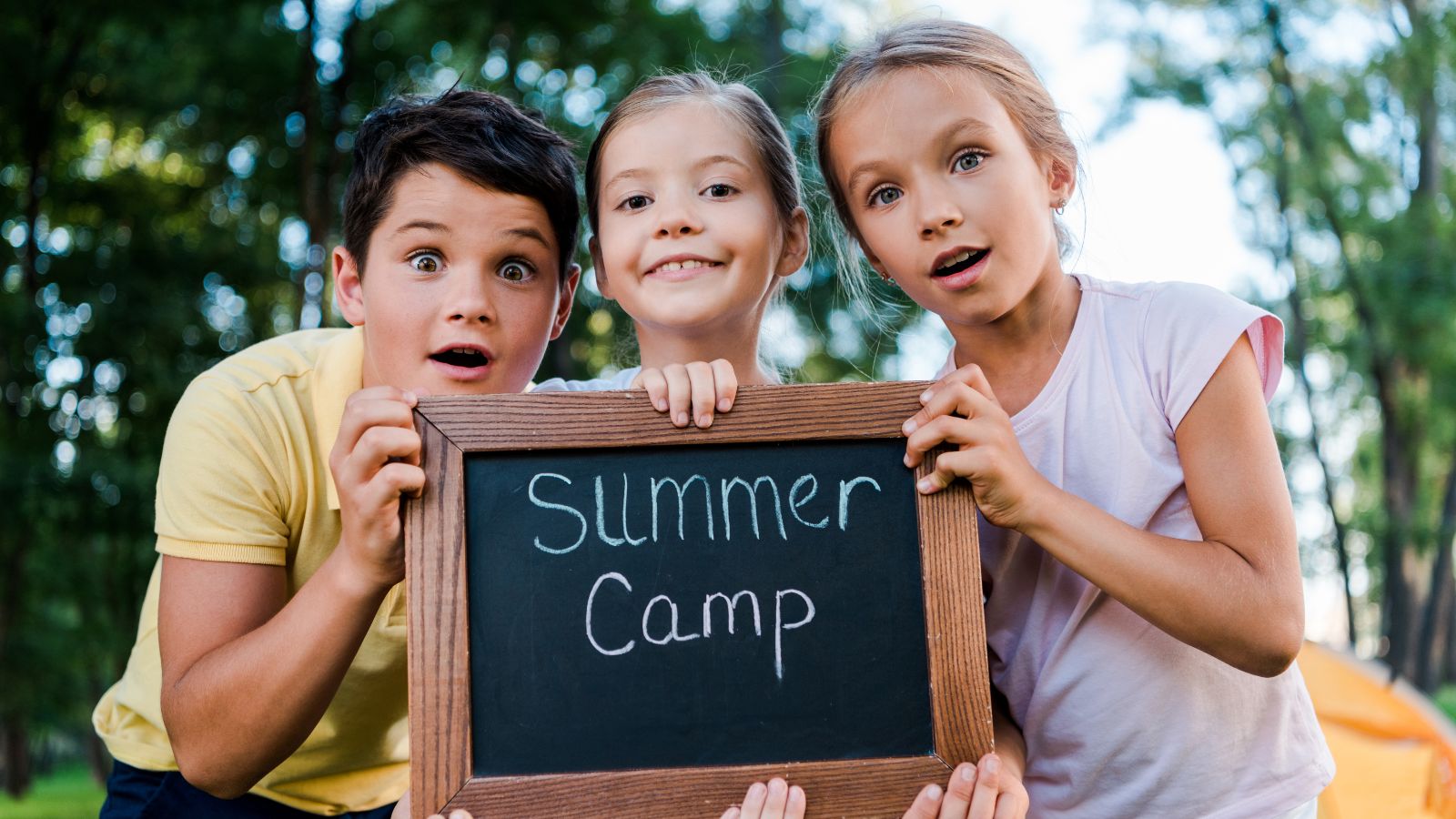
Each year, thousands of children across the U.S. head to summer camp. Whether it’s forest cabins or lakeside tents, the goal is the same: connection. Free from school routines and screens, campers interact face-to-face, build friendships, and gain confidence. Shared living, outdoor activities, and teamwork foster emotional awareness and lasting social skills. For both first-timers and returning campers, the impact goes beyond one season. Camp isn’t just fun, it’s growth.
Why Summer Camp Supports Social Growth in Kids
Unlike school, summer camp removes grades and competition from the equation. Campers interact through shared adventures, not classwork. This opens the door to more natural conversations, stronger connections, and meaningful group dynamics that aren’t tied to performance.
The structure of camp life reinforces constant interaction. From morning routines to team games and nighttime reflection, campers move through each day together. Without screens or distractions, they become more present, learning to read tone, listen fully, and respond with intent.
Camps like Pali Adventures are designed with this environment in mind. Their programs combine creative exploration and outdoor challenges to encourage communication, teamwork, and emotional growth – giving every camper the space to connect in real, lasting ways.
Daily Camp Activities That Strengthen Communication and Teamwork
The daily rhythm of camp life creates countless chances for kids to connect, share, and collaborate.
Group Tasks That Build Peer Connections
Every camp schedule includes activities designed to be done together. Whether it’s canoeing in pairs or playing team sports, these tasks create space for kids to speak up, listen, and cooperate. There’s no skipping out or watching from the sidelines. Everyone participates, and that participation teaches patience, sharing, and encouragement.
Working in groups also lets kids notice how others react. They see when someone’s frustrated or needs help. In turn, they adjust their actions. Over time, this repetition builds habits that stick. Campers learn to support each other, divide tasks fairly, and celebrate shared wins without being prompted.
Resolving Disagreements With Counselor Support
Disagreements are a natural part of any group experience, and at camp, they’re treated as opportunities to learn rather than setbacks. When tempers flare or missteps occur, kids aren’t scolded; they’re guided. Trained counselors step in with patience and calm, helping campers slow down, talk through the conflict, and consider perspectives beyond their own. In the process, they not only resolve the immediate issue but also practice valuable skills in empathy, communication, and finding common ground.
Rather than avoiding tough moments, kids learn to face them. They apologize, compromise, and move on. This builds confidence in their ability to handle friction. They come to understand that disagreements can be resolved without isolation or drama, a lesson many carry back home.
Emotional Development Through Shared Camp Experiences

Emotional intelligence isn’t about memorizing terms or following instructions. It’s about recognizing feelings, controlling reactions, and showing care. Camp teaches all of this in subtle, daily ways. Kids might feel nervous on day one, then proud by week’s end. They experience highs and lows, and they’re surrounded by others doing the same.
When a camper misses home, they don’t hide it. They’re comforted by peers and staff, which validates that emotion and shows that it’s okay to share. Over time, this acceptance helps them label what they feel – whether it’s sadness, excitement, or stress – and respond in healthier ways.
Counselors model the right tone. They stay calm, listen well, and speak clearly. Campers often mirror this, picking up non-verbal cues, practicing empathy, and managing their impulses. Group reflections, cabin chats, and even themed games create chances to grow emotionally without pressure. It’s a space where self-awareness builds naturally, alongside compassion for others.
Social and Leadership Skills That Extend Beyond Camp
Camp doesn’t just impact kids during those few weeks. The confidence they gain travels with them. Living away from home, making choices, and navigating group dynamics teach independence. Once campers return, they often speak more freely, join in more easily, and approach new people with less hesitation.
Friendships formed at camp often cut across age, interest, and background. This diversity pushes kids out of comfort zones. They become more flexible in how they connect, more open to unfamiliar ideas, and more accepting of differences. These qualities boost social adaptability in school, sports, and future workplaces.
Many camps also assign light leadership roles. A camper might be asked to guide a hike or help plan a group meal. These small responsibilities reinforce the value of contribution. When kids feel they’ve helped or led well, they carry that pride home. It becomes part of their identity. Over time, these opportunities lay the groundwork for strong future leaders with balanced emotional responses.
Core Benefits of Summer Camp for Social Growth
Camp doesn’t just create memories. It strengthens traits that kids continue to use long after summer ends. The environment supports both personal development and real social growth in ways that feel natural, not forced.
Below are some of the most noticeable outcomes seen in campers across age groups:
- Stronger peer communication,
- Increased empathy and emotional awareness,
- Better conflict resolution habits,
- Higher adaptability in new social situations,
- Growth in self-confidence,
- Positive risk-taking and resilience,
- A sense of belonging and inclusion.
These benefits don’t rely on lectures or worksheets. They come from shared meals, long hikes, and everyday moments between campers and staff. That’s what makes the experience so impactful: it shapes how kids relate to others in ways that stay with them.
How Parents Can Choose the Right Summer Camp
Not all camps offer the same experience. For parents who want their child to grow socially and emotionally, it’s worth asking the right questions. Camps that value these outcomes often build them into their structure. They may cap group sizes to ensure everyone is seen and heard. They train staff in interpersonal guidance, not just safety protocols.
After camp ends, parents can reinforce what was learned. Simple conversations about new friends, favorite moments, or challenging experiences can help kids process and retain growth. Listening without judgment and encouraging continued connection, like writing letters to camp friends, keeps the social learning alive. In that way, the camp experience doesn’t fade. It becomes a lasting part of who they are.


















